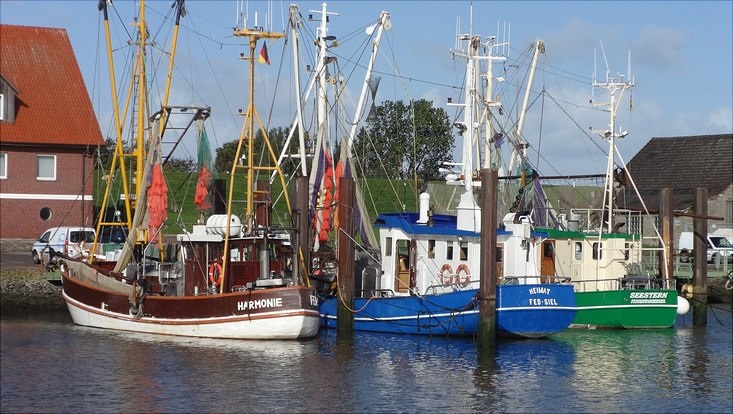How can we save crab fishing?

Crabs: delectable to some, unappealing to others. But differing tastes aside, for crab fishers on the North Sea, they’re vital. Said fishers are now up to their necks in trouble, as they face drastically declining catches. What’s the problem? What does it have to do with climate change? And what types of changes are conceivable and realistic? Researchers at the University of Hamburg have tackled these questions.
However, unlike the practices often seen in the past – examining the problem from the “ivory tower” of academia – they are working together with the main actors in crab fishing. This succeeds thanks to a more hands-on approach: they travel to their subjects, conduct interviews on the basis of fixed guidelines, and host workshops with representatives of producer organizations, administrative bodies and politics, and of course with the crab fishers who go out on their cutters every day. After all, the North Sea is their life-world and they keep a close eye on the developments there: how e.g. currents and wind directions are changing, how the water is growing warmer, the fact that tuna can now be found in the Wadden Sea again, that the cod are disappearing from their fishing grounds, and that there are no crabs for months at a time. Their practical knowledge complements the research data.
But it’s not just climate change that spells trouble for the crab fishers. Offshore wind parks have reduced their fishing grounds and a ban on trawling nets could be looming. The Hamburg-based researchers take all these aspects into account when developing scenarios for the future of crab fishing: how will fishers and the industry as a whole need to adapt to climate change so that fishing fleets of various sizes are still lucrative, and what changes will politicians and administrators have to implement to support crab fishing? In turn, the scenarios are discussed with the fishers before being presented to government offices and political decision-makers.
Further Information
Project partners
Crab fishers in the bays of Germany’s North Sea coast
Association of Small High-Seas and Coastal Fishers, part of the State Fishing Association Weser-Ems (Verband der Kleinen Hochsee- und Küstenfischerei im Landesfischereiverband Weser-Ems e.V.)
Lower Saxony Chamber of Agriculture, Agriculture Division, Fishing Subdivision
Thünen Institute of Sea Fisheries, Maritime Sociology / Working Group on Structural Change in Coastal Fisheries
Project website
www.cliccs.uni-hamburg.de/research/theme-c/c3/themes/theme-1.html
Since 2019, through Germany’s Excellence Strategy the project has received funding from the German Research Foundation (DFG) as the University of Hamburg’s Cluster of Excellence for climate research “CLICCS – Climate, Climatic Change, and Society.” Hamburg’s Center for Earth System Research and Sustainability (CEN) coordinates the CLICCS program in close cooperation with the project partners.
